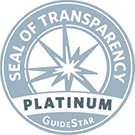
The absent director: Doesn’t respond to emails, barely skims the material, misses more meetings than not.
Nobody wants somebody like this on their board. Non-participation drags the entire board down, as active board members wonder why they’re holding up their end of the bargain while one of their peers is allowed to skate unencumbered through their board service.
But consider the other extreme: board members who fixate on budget details, endlessly debate event programs, fuss over the intricacies of newsletter design.
Sound ideal, to have a board that involved?
Not really.
Because board members need a little distance to properly do their job.
It’s a tricky balance. We want board members to roll up their sleeves, especially in fundraising. We’re grateful, and relieved, to have board members to share the burden with.
And for executive directors without a peer on staff, we’re a little less lonely when board members are by our side, worrying with us about the ebbs and flows of cash-on-hand, the fine points of branding and messaging, the minutiae of donor management.
But that’s the key word – management.
The board should be a sounding board – for the big picture. And the details are too absorbing, and so much more easily-graspable, that it’s all too easy for board members to get stuck there and never find their way out again to the big picture.
Just like staff.
So beware the gift horse – the worker bee who’s ready to roll up their sleeves and sit by your side. Often prized as the most-needed feature for new board members (“We just need to get people in here to do the work!”), that may actually be a more valued asset for a committee volunteer than an attribute for someone taking a board seat.
The good news is – it only takes one person at a board meeting to re-focus the board back on the larger perspective. One person on a committee to say “Let’s step back and be strategic about this.” (Side note: You may have to prompt that person ahead of time to play this role, but it’s worth it.)
A board-staff conversation should be strategic. Always. That’s what it’s there for.




